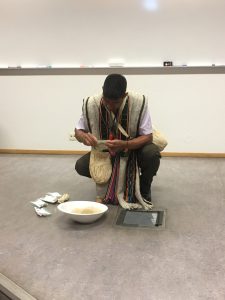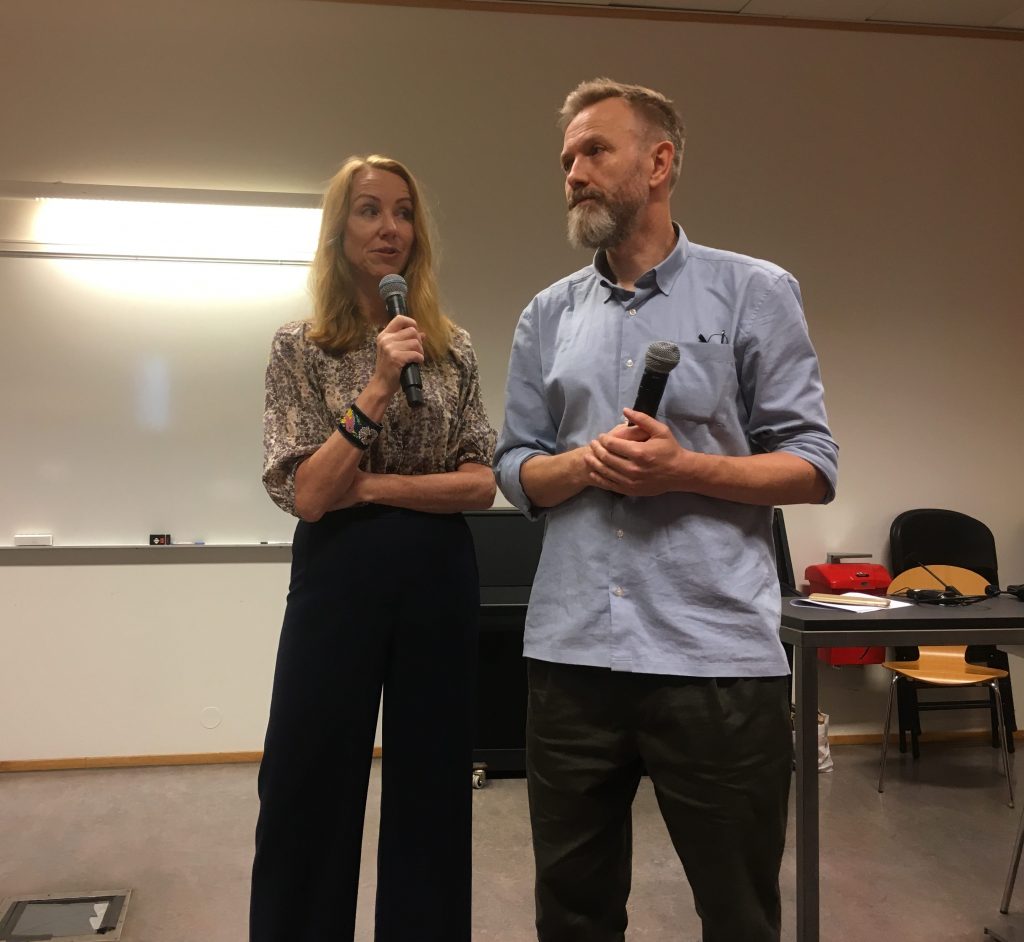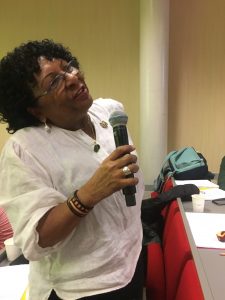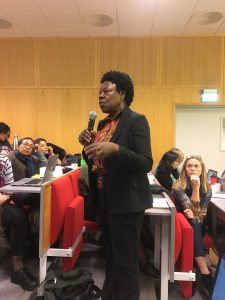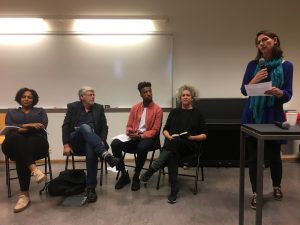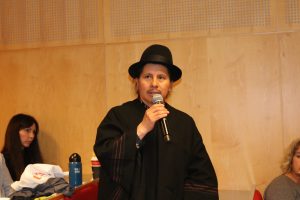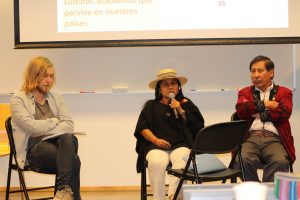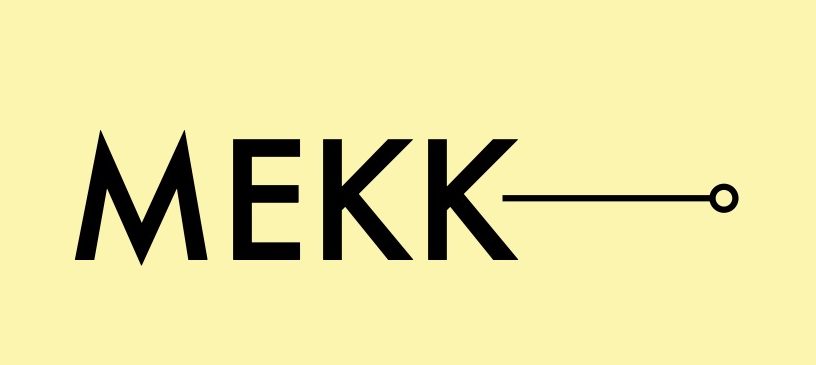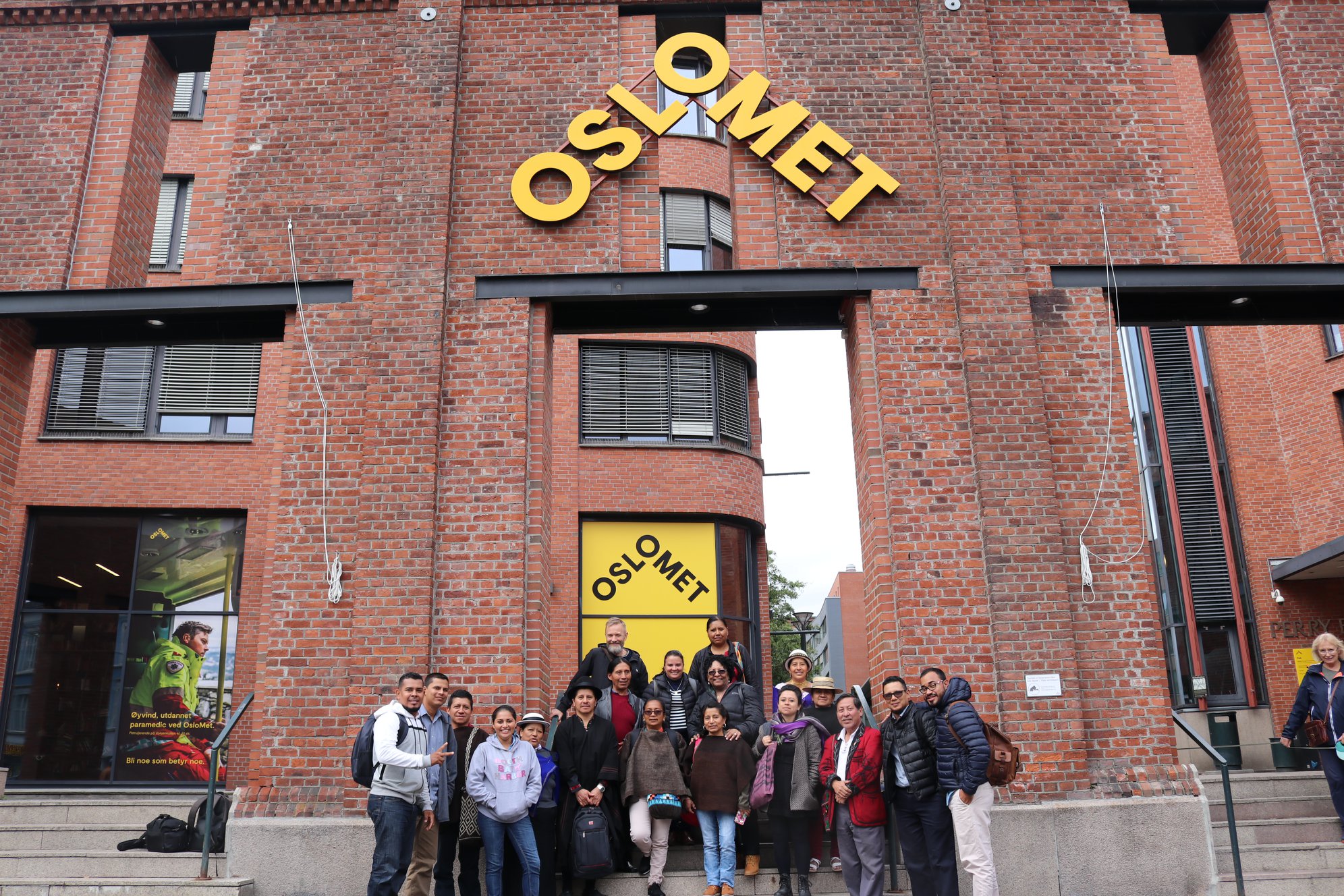
The 6th of september the MEKK-group, together with Norwegian Students’ and Academics’ International Assistance Fund (SAIH) & The Peace Research Institute Oslo (PRIO), held a seminar to share, discuss and present different experiences on decolonization of higher education. Present at the seminar was the Network of Indigenous, Intercultural and Community Universities (RUIICAY) from Colombia, Ecuador, Nicaragua and Guatemala, and also Goretti Nasanga, Professor at the Journalism & Communication Department, Makerere University.
Both the RUIICAY network and Makerere University participate in the NORAD program NORHED (an abbreviation of the Norwegian Programme for Capacity Development in Higher Education and Research for Development). This programme was launched by Norad in 2012. The overall goal for the RUICCAY network is to strengthen the autonomy of indigenous, afrodescendants and other vulnerable ethnic peoples for effectively exercising rights and promoting inclusive, equitable and intercultural development in Latin America. At the conference they presented, among other things, the CRISAC method (Cultivo y Crianza de Sabidurías y Conocimientos), a method developed by the indigenous universities.
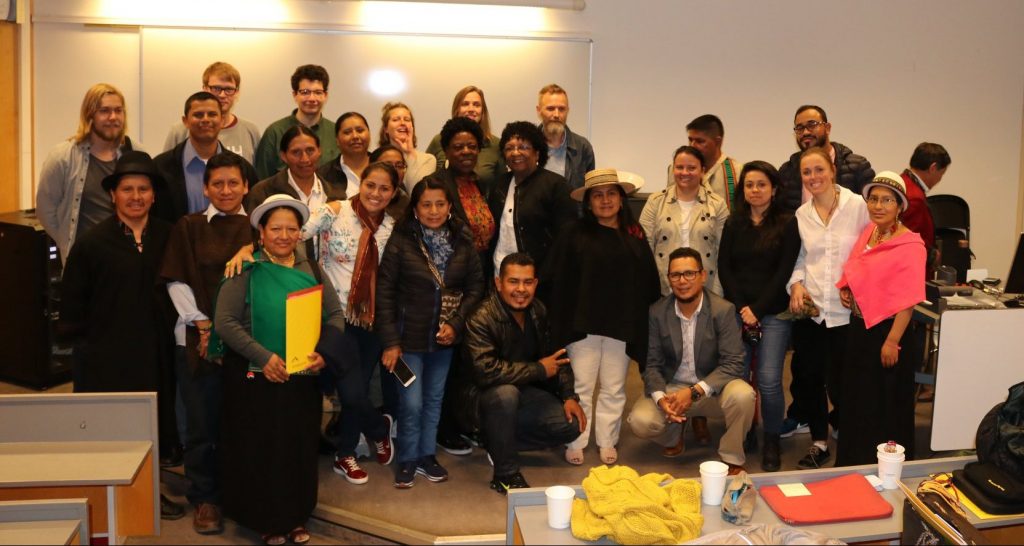
Background for the conference
Four years ago, the protest movement #Rhodesmust fall, at the University of Cape Town in South Africa, revived the movement to decolonize higher education. The movement was not only about removing old statues that symbolized the suppressing legacies of the past, but most of all about working to undo colonizing practices and ensure better access, participation and attainment of different groups of students and lecturers.
The cry to decolonize higher education quickly spread to several other African countries as well as the rest of the world and inspired discussions on what decolonization involves and what the restrictions are. In his seminal article “Decolonizing the Universities: New Directions”, Achille Joseph Mbembe asks for instance what are the limits placed on the ‘decolonization’ project by the forces of neoliberalism.
The harder I tried to make sense of the idea of ‘decolonization’ that has become the rallying cry for those trying to undo the racist legacies of the past, the more I kept asking myself to what extent we might be fighting a complexly mutating entity with concepts inherited from an entirely different age and epoch. Is today’s Beast the same as yesterday’s or are we confronting an entirely different apparatus, an entirely different rationality – both of which require us to produce radically new concepts? (Mbembe, 2016).
Furthermore, as decolonization is also considered to be about conditioning a context that is “receptive to cultural affirmation reclamation, and self-determination” (DuBois, 2019), institutions of higher education are also considered to play an important role in decolonizing societies. Hierarchies of knowledges exist both among/between states and within borders among and between nations, peoples and groups.
When we discuss decolonising the academy, we are talking about power, and more specifically power hierarchies. So, we are discussing unevenly distributed power when it comes to defining knowledge, which inevitably leads to skewed knowledge, to incomplete knowledge” (Erdal 2018).
The Conference ‘Experiences of decolonization of higher education’ aims at offering an arena for continuing such discussions. Following Freire, the conference proposes dialogue and dialogic action to share and discuss practical experiences of decolonization of higher education.
